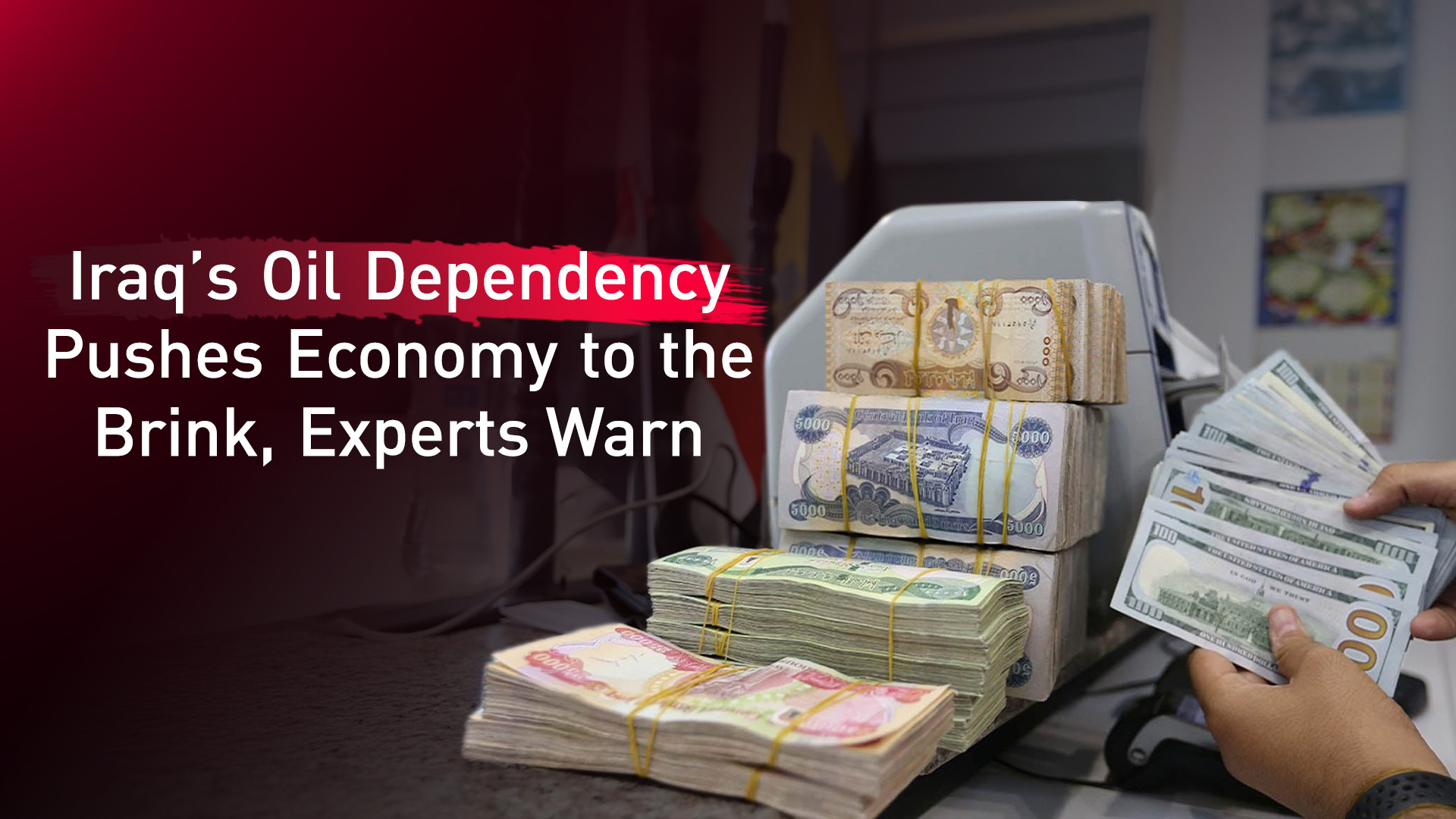Iraq’s Oil Dependency Pushes Economy to the Brink, Experts Warn
“The government remains trapped under the weight of economic mismanagement and high unemployment, blocking any meaningful development or growth,” The Iraqi economic expert Mohammed Husseini warned.

ERBIL (Kurdistan24) — Iraq’s heavy reliance on oil revenues and sustained high public spending have pushed the country to the edge of an economic breakdown, according to economic experts and official data.
Iraq’s Ministry of Finance announced that the federal budget revenues for 2024 reached over 140 trillion dinars (approximately $107 billion). Of this, a staggering 91%—nearly 127.5 trillion dinars—came from oil exports, while non-oil revenues made up only 13.2 trillion dinars, highlighting the country’s dangerous dependence on a single income source.
At the same time, public expenditures remain high, totaling 125.2 trillion dinars this year, raising concerns about Iraq’s ability to sustain economic stability amid volatile oil markets and ongoing political uncertainty.
The Iraqi economic expert Mohammed Husseini told Kurdistan24 that Iraq’s budget composition reveals the depth of its structural vulnerabilities. “The government remains trapped under the weight of economic mismanagement and high unemployment, blocking any meaningful development or growth,” he warned.
“To ensure long-term economic stability, Iraq must diversify its revenue streams, reduce public expenditures, and respond to fiscal deficits more effectively,” Husseini added.
The warning echoes previous statements by Muzher Mohammed Saleh, a financial advisor to the Iraqi Prime Minister, who attributed Iraq’s economic stagnation to persistent insecurity and ongoing political instability. These factors, he argued, have caused fluctuations in national income and hindered economic recovery.
Experts are increasingly sounding the alarm over Iraq’s failure to reduce its dependence on oil, especially as global oil prices remain unpredictable due to shifting political dynamics and market instability. Oil prices have historically been subject to wide fluctuations, which in turn make Iraq’s financial planning highly vulnerable.
Despite repeated calls for reform, the Iraqi government has struggled to manage its sovereign wealth funds and implement structural changes that could steer the economy toward sustainability. Subject matter experts say the country’s inability to strengthen non-oil sectors such as agriculture, tourism, and industry reflects a broader institutional weakness.
Iraq, one of the world’s leading oil producers, has long relied on petroleum exports to fund the majority of its budget. However, this dependency has left the country exposed to global oil price shocks. Following years of conflict, political turmoil, and governance challenges, Iraq continues to grapple with high unemployment, low foreign investment, and a fragile security environment.
Despite ambitious reform agendas presented by successive governments, Iraq remains caught in a cycle of oil-based revenues, ballooning public sector wages, and insufficient infrastructure investment—a combination that many economists now say could lead to a fiscal and economic crisis if unaddressed.
As reconstruction and recovery remain urgent priorities, Iraq faces the pressing task of transitioning from an oil-dependent economy to a more diversified and resilient one. Without meaningful reform, experts warn the nation may remain in a permanent state of economic limbo.